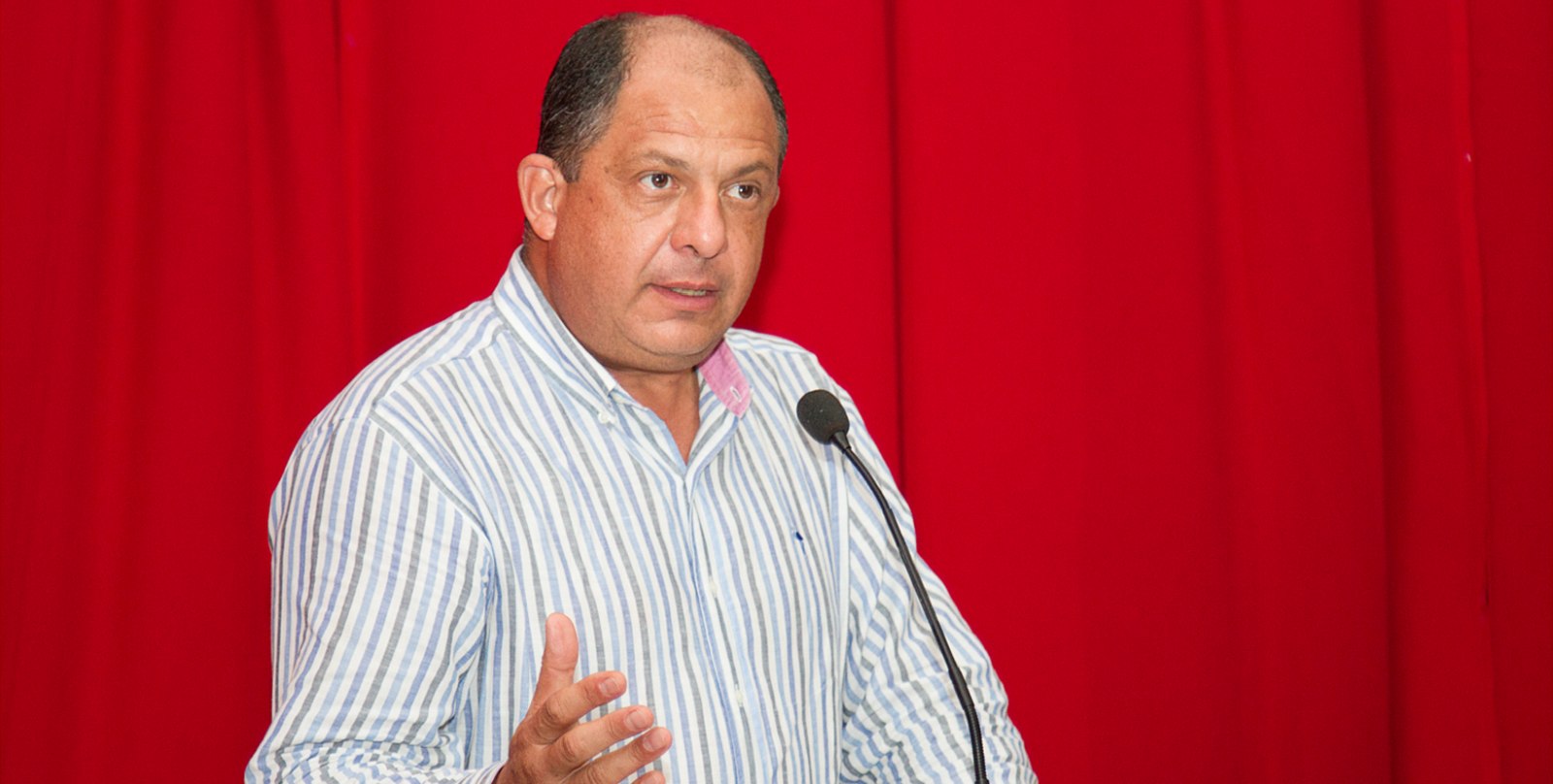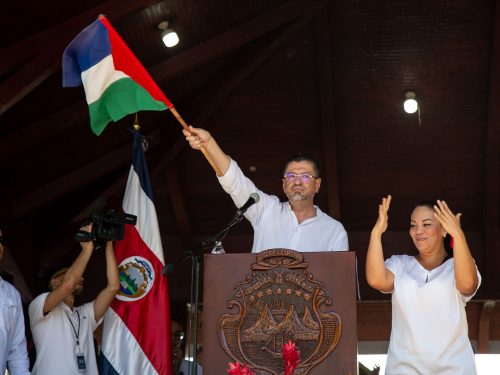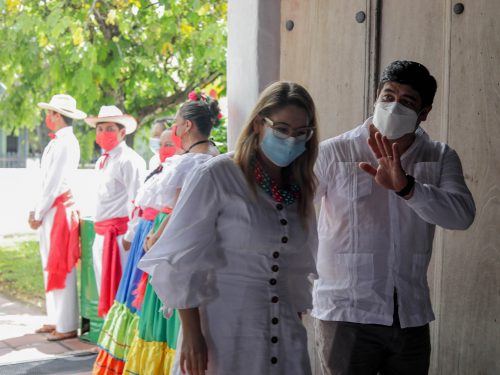
The rectory of the National University (UNA – Universidad Nacional) received a visit on July 24 from President Luis Guillermo Solis and government ministers at their Nicoya campus, with the goals of discussing the drought problems ravaging the province of Guanacaste and looking for alternative solutions.
More than 100 people were present for the event, including local leaders, presidents of ASADAS, community development associations and municipal representatives. The event featured a presentation of results from hydrographic studies done by experts from the Ministry of Agriculture and Livestock (MAG – Ministerio de Agricultura y Ganaderia), the Ministry of Environment and Energy (MINAE – Ministerio de Ambiente y Energia) and UNA.
The presentation was led by Doctor Ricardo Sanchez, an hydrological expert with UNA.
Sanchez used graphs to present rainfall data from the last two decades. “The drought problem in Guanacaste is nothing new, throughout history Guanacaste has had prolonged droughts, which is why we should take preventative measures and for that we should start with synthesizing all of the information available from studies that have been done,” he said.
Sanchez proposed installing an observatory that would allow for the continuous collection of rainfall, surface water and groundwater data in order to pursue better usage strategies.
Yamileth Astorga, Executive President at AyA, said that Sanchez’s proposal would cause increase AyA’s operational costs and that the institution does not currently have the financial capacity to take on the project. “Continuous monitoring is important, but it costs a lot of money and at the moment we have to choose between the ideal [scenario] that you [Sanchez] propose or opting for something simple and practical to give immediate answers,” said Astorga.
For his part, the president applauded Sanchez’s report. “Your presentation was extraordinary; you explain very well the efforts that the National University has always made, and it seems wise to me to organize all this information through a database [that] will allow us to convert that information into public policy,” said Solis.







Comments